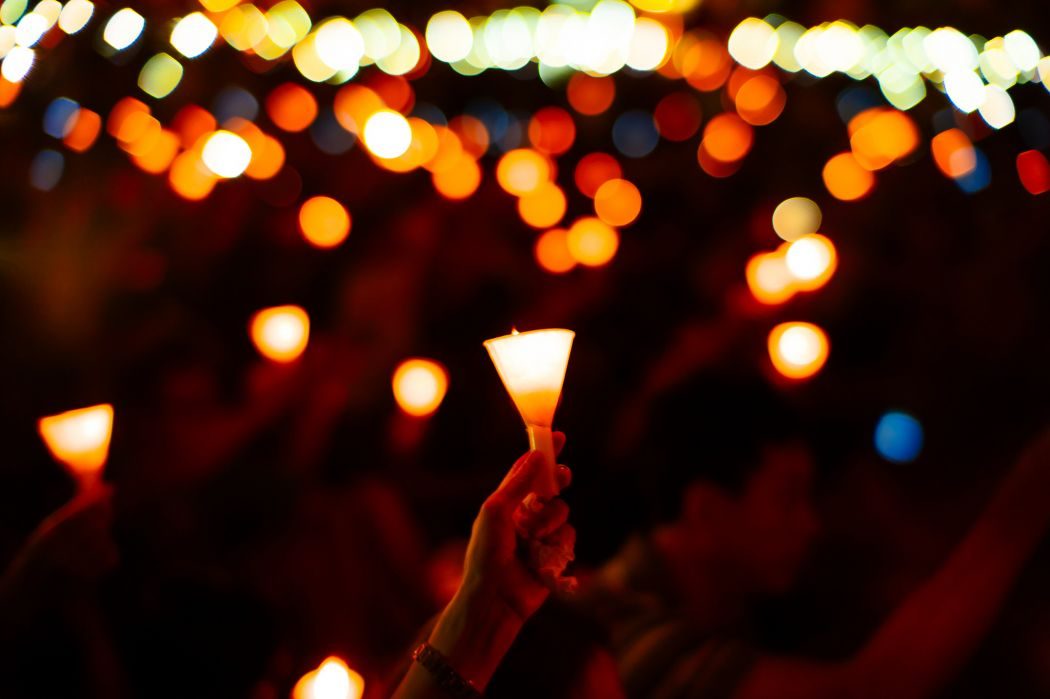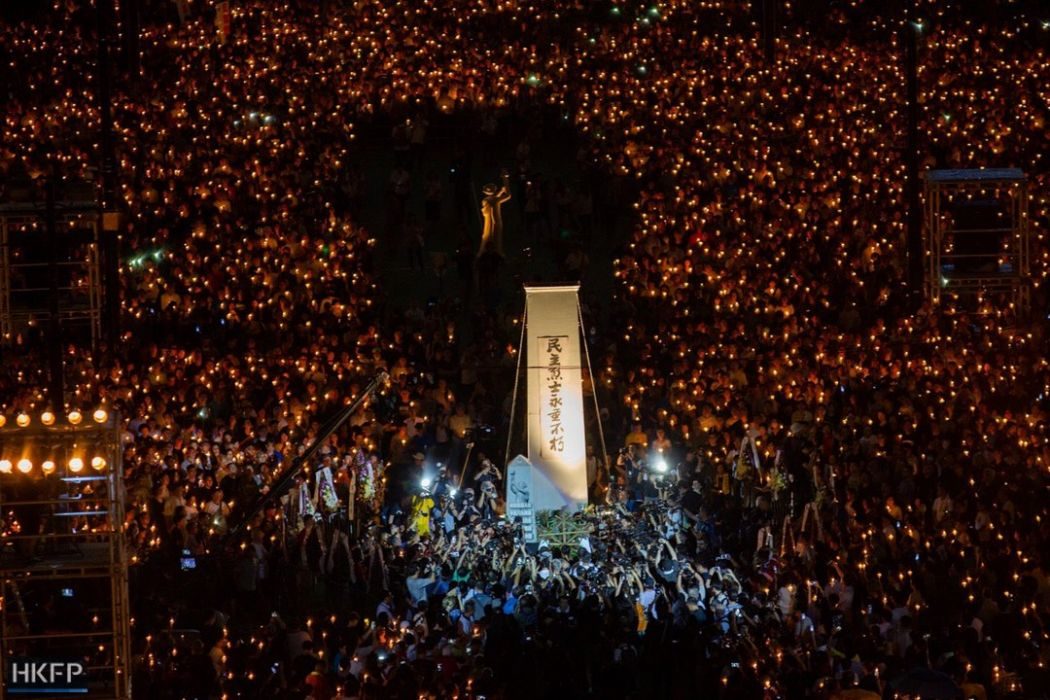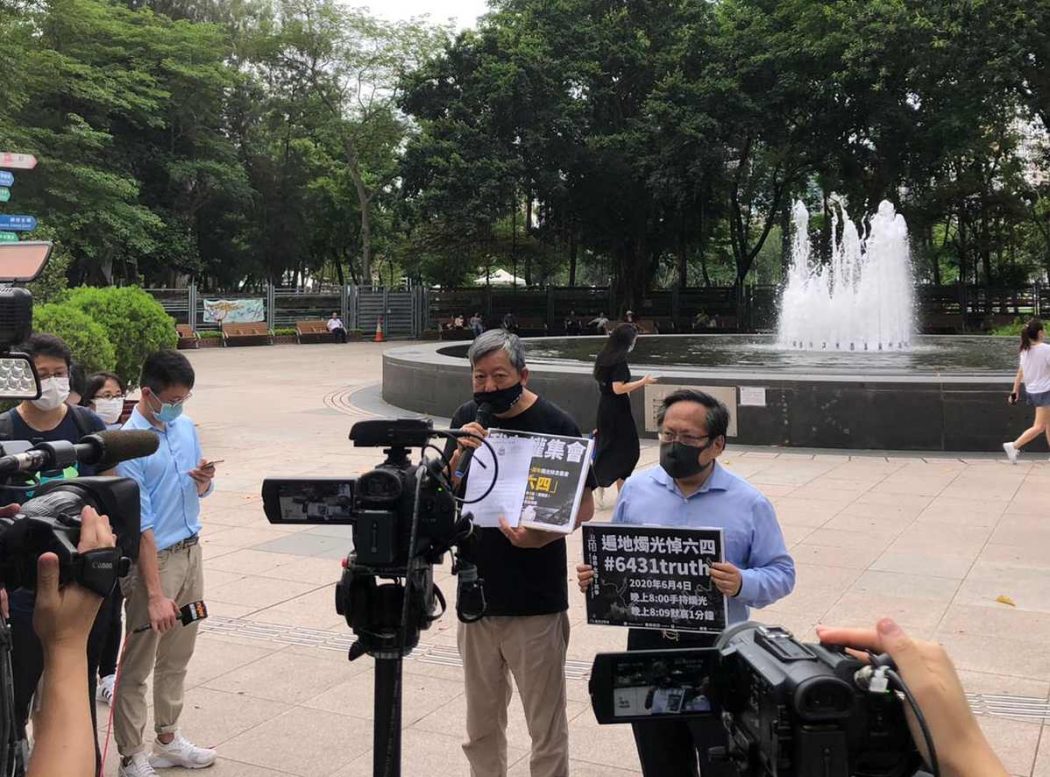Hong Kong police have banned the annual vigil marking the 1989 Tiananmen Square Massacre for the first time in 30 years, citing coronavirus public gathering restrictions.
On Monday, the force wrote a letter to Richard Tsoi, vice-chair of Hong Kong Alliance in Support of Patriotic Democratic Movements in China – organiser of the event at Victoria Park – saying it objected to the planned assembly due to current social distancing measures.

“Public assemblies are a high-risk activity due to large crowds gathering. Police believe that the event will not only increase participants’ chances of contracting the virus but also threaten citizens’ lives and health, thus endangering public safety and affecting the rights of others,” it read.
The candlelight memorial on June 4 usually attracts thousands of participants. However, authorities last month extended the city’s Covid-19 restrictions, including a ban on public gatherings of more than eight people, which would apply to the event.
The Tiananmen massacre occurred on June 4, 1989, ending months of student-led demonstrations in China. It is estimated that hundreds, perhaps thousands, of people died when the People’s Liberation Army was deployed to crack down on protesters in Beijing.
In response to the anticipated police objection, the Alliance urged members of the public to take part in an online vigil, where the organiser will light candles at Victoria Park and observe a minute of silence at 8:09 pm.

Chair of the Alliance Lee Cheuk-yan told reporters their members would convene in groups of eight to host the event on Thursday.
“We will mourn individually. We hope that there will be candles lit up in various districts across the city including ours at Victoria Park,” he said. “Each candlelight vigil is self-initiated and does not constitute an assembly.”
Pro-democracy activist-turned Tuen Mun District Councillor Michael Mo also announced on Facebook that a separate vigil in Tsim Sha Tsui would be cancelled due to pandemic restrictions.
He claimed the government had used the coronavirus as an excuse to bar citizens from commemorating victims of the massacre: “To prevent Hongkongers from police brutality, we are not going to hold a vigil in front of the freedom fighter statue this year.”

Since 2013, activist groups have held alternative memorials due to their disagreement with the Alliance’s goal of “building a democratic China.” Ex-lawmaker Raymond Wong and media group Passion Times organised commemorative events from 2014 to 2016, whilst Mo coordinated vigils in 2018 and 2019.
Asked on an RTHK radio programme about whether certain protest slogans would violate looming national security laws, pro-Beijing heavyweight Maria Tam said it would depend on the clauses of the legislation.
“If someone chants ‘End one-party rule,’ you can leave. You should be decisive. It’s not worth it to get into trouble with the law,” she added.
In response to the police’s decision, Amnesty International’s Deputy Director for East and South East Asia Joshua Rosenzweig said Covid-19 must not be used as a reason to stifle freedom of expression.
“By deeming this important memorial event ‘illegal’, the police have again needlessly exacerbated rising tensions when thousands of people simply want to light a candle for those who lost their lives during the horrific events of 4 June, 1989,” he said.
“With this ban, and a disastrous national security law looming, it is not clear if Hong Kong’s Tiananmen vigil will ever be allowed to take place again.”
Macau vigil ban upheld
Meanwhile, Macau’s Court of Final Appeal dismissed lawmaker Au Kam San’s appeal against a decision to ban the city’s Tiananmen vigil due to public health concerns, despite there being no remaining cases.
“The head of Public Security Police Force of Macau believes that, according to the Health Ministry’s professional advice, organising the assembly will pose serious danger to public health and safety,” the judgement read.

The court maintained the view that Macau residents enjoyed the right to assembly, however, the government may restrict basic rights and freedoms in order to prioritise public health.
Its organiser – the Democratic Development Union – has announced plans to broadcast a live vigil and encouraged participants to record voice messages on the messaging app Telegram in order to share their opinions.
The ban came after the city axed an annual photographic exhibition about the massacre last month.
Additional reporting: Jennifer Creery.
Correction: 22:38: A previous version of this article erroneously stated that a lower court made a decision over Macau’s vigil. In fact, an appeal was made directly to the city’s top court.
